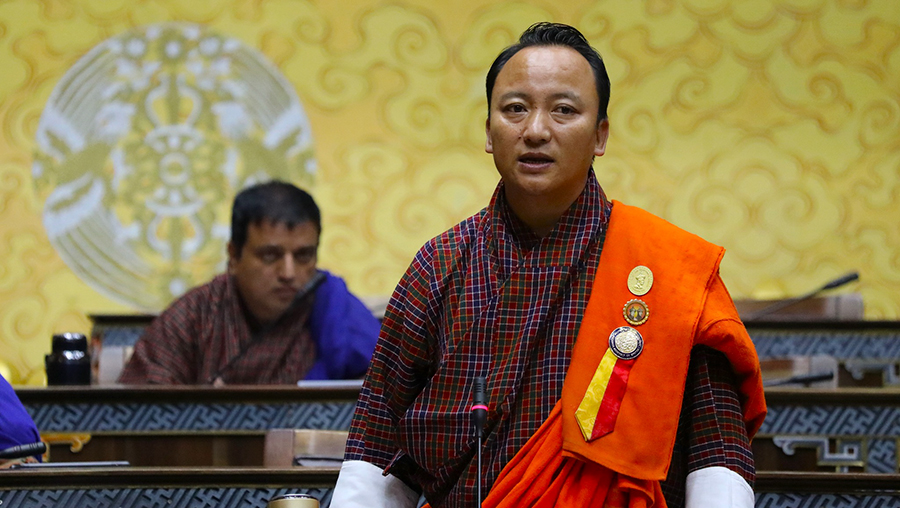
The country’s foreign currency reserve stands at around USD 600 M as of now. This, the Finance Minister says, will be sufficient for the essential imports for the next 12 months as mandated by the constitution. The minister shared this while addressing concerns during the introduction of the Annual Budget Appropriation Bill and the Supplementary Budget Bill at the National Council today.
Presenting the two bills at the National Council today, the finance minister faced several questions and concerns from council members regarding the annual budget, the decreasing foreign currency reserve and the overall state of the economy. One of the key issues discussed was the country’s declining foreign currency reserve.
“Between 2022 and 2023, the foreign currency reserve decreased to 689 million. Nevertheless, in fourteen months, it helped in importing essential items. But as per RMA, to fulfil the mandate of the constitution, we need a minimum of USD 668 M,” said Tshewang Rinchen, Samdrup Jongkhar MP.
“According to the constitution and RMA, the government needs to keep a minimum of 668 million USD as a foreign reserve. But earlier it was mentioned that we have USD 600 M. Is it not going against the provisions of the constitution and the RMA? We would also like to know, what are some of the measures taken by the government to improve our reserve?” questioned Sonam Tenzin, Trashi Yangtse MP.
Responding to the queries, the finance minister revealed that the country for now only has about USD 600 M as Foreign Currency Reserve. He said that due to the country’s heavy reliance on imports, the foreign currency reserve is getting depleted.
“It does not matter whether we have billions as a foreign currency reserve. Looking at the economic activities of our country, we are importing a lot and if we continue spending the money this way, even billions of reserves will not be enough for us,” said Finance Minister, Namgay Tshering.
The finance minister further clarified that the government’s actions were not in violation of the RMA or the constitution. He said the critical level of the foreign currency reserve has not been breached yet.
Highlighting the measures to improve the foreign currency reserve, the minister said besides the revenue generated from the export of electricity and earnings from the tourism sector, the government is also planning to introduce a green bond. According to the minister, the initiative would allow Bhutanese residing in foreign countries to invest their money in ongoing projects within the country.
“Through this initiative, Bhutanese residing in foreign countries will send their money to the country and we are going to use that for the construction of hydropower projects. This will make a lot of difference. Moreover, this is innovative financing. The other one is through foreign remittance,” said the finance minister.
Moreover, the minister assured the house that efforts are underway to strengthen the reserve. He highlighted that Bhutan will soon receive 50 M US dollars from Japan International Cooperation Agency, another 50 M dollars from Druk Holding and Investments and about three billion rupees from the Government of India, all of which will contribute to improving the foreign currency reserve.
The session also addressed several other important topics, including the replacement of the Royal Bhutan Helicopter, the potential increase in the budget for barbed wire fencing and the review of State-Owned Enterprises’ efficiency.
The house also discussed prioritising various projects amidst the struggling economy, addressing the rising unemployment rate and suspension of housing loans.
The house will continue its deliberation on the two bills tomorrow as well.
Passang Dorji & Deki Lhazom
Edited by Kipchu









